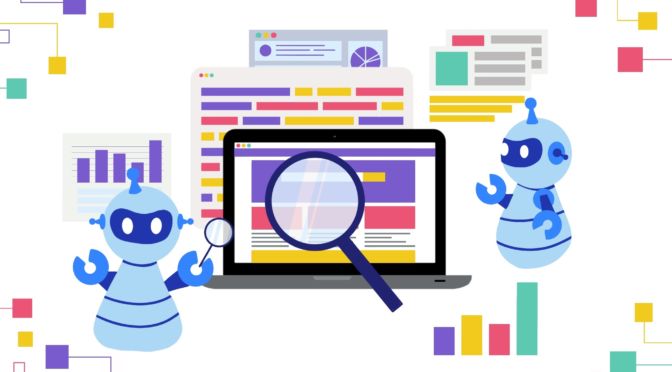Introduction to AI in Testing
You probably know that artificial intelligence refers to machines’ ability to simulate various human intelligence processes. And there have been significant developments in the Artificial Intelligence (AI) industries, with machines automating and taking rational actions and decisions as well as exhibiting traits commonly associated with humans.
Did you know that AI-based testing is a specific software testing technique where AI and Machine Learning algorithms effectively test a software product? Almost twenty-five years ago, Skynet, the fictional AI network of the “Terminator” movie series, became self-aware. Who could seriously forget the events of Aug 29, 1997—when Skynet launched a whole mess of nukes and unleashed “Judgment Day?”
If you are a QA tester, you will be aware of AI’s potential to take over. Will AI replace manual testers? Will AI replace automated testing?
In our opinion, this may not happen in the near future. This is because even the best AI won’t be able to replace a talented and experienced tester who, like end-users, is human.
When working with software, it isn’t hard or far-fetched to imagine how AI could significantly change software development and testing as we know it.
In recent years there has been a lot of speculation around whether artificial intelligence will replace automated testers’ jobs. Eventually, AI will not replace the tester’s jobs. We do believe that AI will replace the dedicated testing phase in the future.
Also, it will change how quality assurance testers perform the testing. There will be some other changes as well. In the future, AI may accurately diagnose scalability as well as performance problems and even adequately create documentation.
How AI Products help Test Automation Efforts
We can define automation testing or test automation as a software testing technique that applies software tools in order to automate a human-driven and manual process of reviewing and then validating software products. Note that in software testing, AI is helpful as it allows you to automate repetitive and monotonous tasks like writing, analyzing, executing, and refactoring test code. AI can handle errors and learn from mistakes.
You will be happy to know that tools like Autify, which uses AI, are striving to continually make software tests much smarter and more efficient. You know that in software testing, automated testing involves using software separate from the application that’s being tested in order to validate the desired functionality and features of the application.
The best thing is that artificial intelligence testing tools and platforms can work closely with the software testers to achieve improved quality and efficiency in software testing.
Did you know that the software development life cycle has become more complicated? As a result, management of delivery time is now more important than ever. You will be happy to know that software testers have to work smarter and not harder in this modern age of software development, and AI tools can help with that. Find out how AI can improve test automation.
AI-automation Testing Benefits
Identify Bugs Faster
Did you know that currently, the most pressing issue facing the QA area is the enormous amount of data testers need to analyze in a given period? And a majority of an average tester’s work (sometimes up to 80%) involves examining hundreds or even thousands of cases in the regression process.
On the other hand, new artificial intelligence tools could cut down the time that it takes to find bugs in software. This is because when you transition from manual testing to an AI test automation platform, you use big data. And you will be happy to learn that AI prefers large amounts of data in order to learn. And the more it can learn, the better it can benefit your various test scenarios.
Also, AI can identify bugs faster, handle large quantities of data, learn patterns, and can provide predictive forecasting in order to make better and more informed data-driven decisions.
Reduction in Human Errors
There is no doubt that automation provides a range of benefits and conveniences to businesses. It can, for example, help do everything from boosting productivity to minimizing mistakes and errors and creating one source of truth for data. When it comes to testing, we can save many hours by using the right tools and methodologies. For instance, regression testing is usually done manually.
We all know that manual testing can be cumbersome and time-consuming, and prone to human errors. As a result, there is a dire need for automation in this area. Not only can computer systems reduce the error rate, but we can also have a level of articulacy and transparency about the reasoning of these algorithms.
Reduction in Development Costs
Regardless of methodology, product quality and swift time-to-market are top priorities in modern software development, and many project managers know what it takes in order to ensure both.
The good news is that scaling test automation can significantly reduce your development and testing costs. Also, AI-powered impact testing has the potential to reduce these costs even further.
This is because it pinpoints the specific areas or elements of an application impacted by a given release and identifies the test cases required to test these areas.
Shipping Software Products Faster
There is no doubt that saved time and money means faster delivery to markets. Because of repetitions in software testing procedures every time a new product is modified or created, human testers are needed in order to solve the unique problem associated with each test case. This is done by creating and automating tests.
The best thing about artificial intelligence tools is that they considerably speed up this process for both testing engineers and developers. As a result, analyzing big data and sorting log files are not that scary anymore. This is important as it helps solve the problem of repetition, thereby saving valuable time and money, helping achieve faster delivery.
Higher Quality Software Products
It is no secret that artificial intelligence is the next important step in empowering teams to develop and deliver high-quality software faster. Surely, tools leveraging AI algorithms can proactively and automatically identify regressions, code quality issues, security vulnerabilities, and much more. And this is often done through unit test automated creations and code scanning.
Many tools test a software application on the basis of user behavior. You can use these tools to improve the quality, performance, and security of software applications.
Conclusion
As you can see, AI certainly has a significant role to play in the future of software testing. We are on the brink of an era when AI and machine learning will disrupt how human testers work. Although self-learning technology is not likely to replace humans soon, it will help negate or reduce the need for many tedious tasks that they currently perform, provided people can learn to trust that AI is not here to take over their jobs. In other words, testers will do software testing with the help and guidance of smart assistance, which is powered by AI.
AI will not take jobs away from people. It is important to provide the technology that allows humans to concentrate on creative work and tasks that only we can do. However, we should delegate unproductive and menial work to AI and increase our productivity.
Organizations such as Autify believe that AI will eventually replace the dedicated testing phase in the future. This is how the company plans to disrupt the current software development life cycle:
Phase 1: Increase automation coverage. First, the company provides a product to automate a greater proportion of test cases that are currently being tested manually.
Phase 2: Increase overall test coverage. Currently, test coverage tends to vary from one person to another. Autify provides a product that can increase the test coverage along with the automation percentage.
Phase 3: Eliminate the test phase. The test phase helps verify that all operations or features work as intended after development. And if we can automate software tests at the initial development stage, development can be driven by tests. After passing all the tests, the software can be released without any need for a separate test phase.
Artificial intelligence has already brought about many dramatic improvements and developments in the field of modern technology, but it still has a really long way to go.
Switching software testing from manual procedures to automated algorithms has been one of the significant trends for testers for quite a while. And this level of optimization can reach new heights with the introduction of AI.
Artificial intelligence has had a considerable impact on testing tools and testing methods generally, and test automation in particular. AI performs repetitive, menial, and mundane work and provides reports on code quality, helping organize the process.

